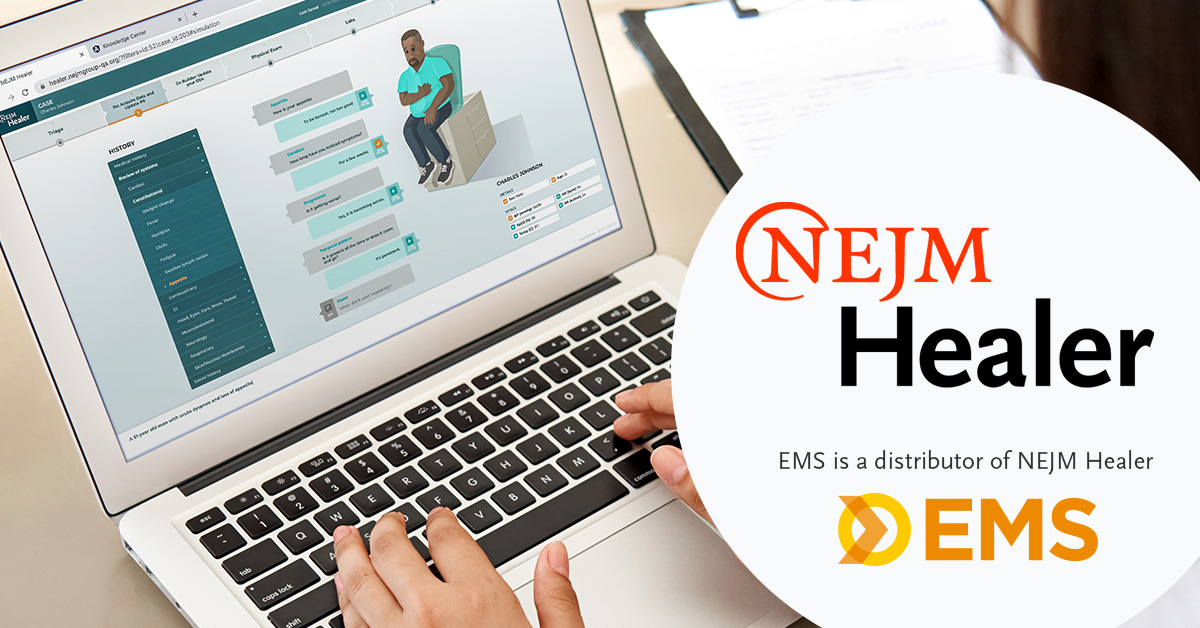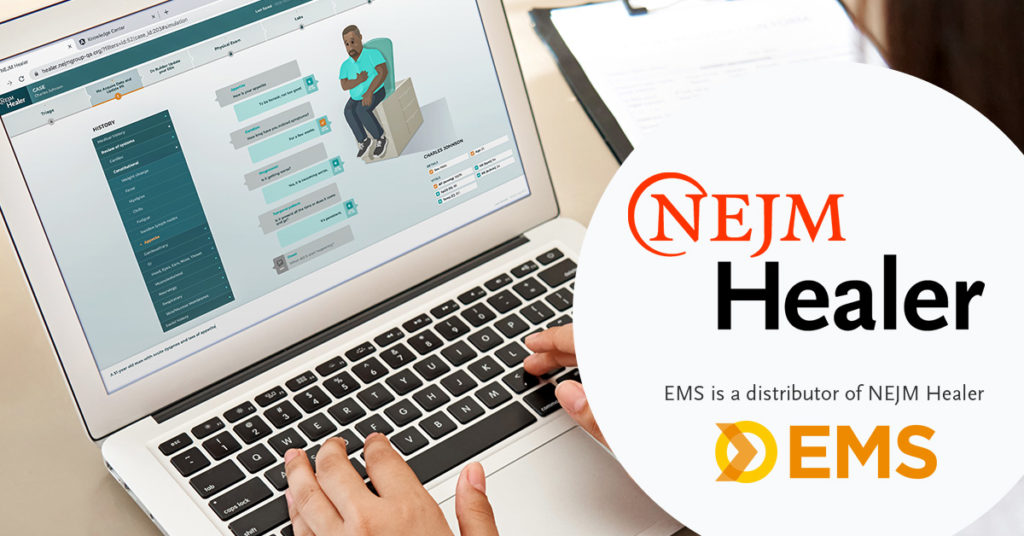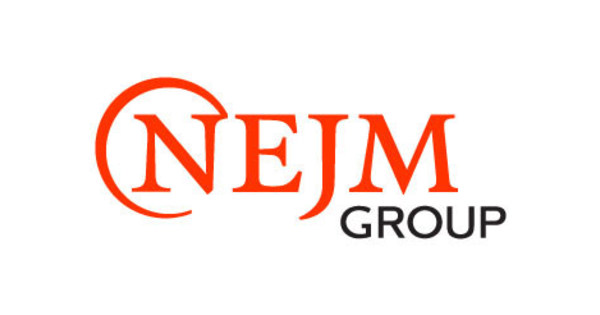

Webinar Event Registration

When and How to Immerse Clinical Reasoning into Your PA Curriculum
Presented by:


Friday, October 29, 2021
12:00PM EST
Session Overview
PA curricula vary by class year and across institutions, but it is always critical to introduce clinical reasoning early in your program. Figuring out when and how to fold in clinical reasoning instruction and assessment can be difficult given the challenges of ensuring deliberate practice for learners.
NEJM Healer, a new screen-based clinical reasoning simulator from the publishers of the New England Journal of Medicine, provides focused, repetitive clinical practice with objective and targeted feedback. NEJM Healer can assist PA educators in preparing students for real clinical experiences and, ultimately, achieving better patient outcomes as independent professionals.
After this webinar, attendees will have a better understanding of:
Strategies for using cases to teach clinical reasoning in both traditional lecture and flipped classroom environments
Using virtual patient cases as formative and summative assessments to design remediation in clinical reasoning for individual students
How specifically to embed clinical reasoning education and deliberate practice in the didactic and clinical phases of your curriculum
NEJM Healer which is founded on deliberate practice and cognitive science theories of clinical reasoning as a valuable tool for your program in the systematic teaching and assessment of clinical reasoning
In this workshop, we will discuss:
In this workshop, we will discuss:
In this workshop, we will discuss:


Facilitators

Raja-Elie E. Abdulnour, MD
Physician Lead and Medical Editor, Healer Director, Educational Innovation, NEJM Group Pulmonary & Critical Care Medicine, Brigham & Women's Hospital Assistant Professor Of Medicine, Harvard Medical School
Dr. Abdulnour is a physician-educator and investigator with an active medical practice in an academic hospital and continuous teaching responsibilities. Drawing on his expertise in clinical science, research, teaching, and innovation, Raja worked with Dr. Jeffrey Drazen and NEJM Group to prototype educational simulation-based software that teaches clinical reasoning and medical uncertainty. In January of 2020, he joined the NEJM Group as Director of Educational Innovation to help further develop this and other educational tools

Anthony A. Miller, M.Ed., PA-C
Anthony A. Miller (Tony) is a Distinguished Professor and former Director, Division of Physician Assistant Studies at Shenandoah University in Winchester, VA.
Professor Miller has over 42 years’ experience in PA education and has held educational leadership positions including Associate Dean, School of Allied Health and Founding Chair, Department of PA Studies at the Medical College of Ohio (now University of Toledo); and Division Head, Health Careers & Natural Sciences at Cuyahoga Community College. He has been a leader for state and national physician assistant professional associations including the President of the Association of Physician Assistant Programs (now Physician Assistant Education Association) and President of the Ohio Association of Physician Assistants. He chaired the APAP Degree Task Force that in 2000 recommended PA education be delivered at the graduate level. He is currently a member of the editorial board for the Journal of Physician Assistant Education and the AAPA’s Commission on Research and Strategic Initiatives.
Anthony A. Miller (Tony) is a Distinguished Professor and former Director, Division of Physician Assistant Studies at Shenandoah University in Winchester, VA. He has over 42 years’ experience in PA education and has held educational leadership positions including Associate Dean, School of Allied Health and Founding Chair, Department of PA Studies at the Medical College of Ohio (now University of Toledo); and Division Head, Health Careers & Natural Sciences at Cuyahoga Community College. He has been a leader for state and national physician assistant professional associations including the President of the Association of Physician Assistant Programs (now Physician Assistant Education Association) and President of the Ohio Association of Physician Assistants. He chaired the APAP Degree Task Force that in 2000 recommended PA education be delivered at the graduate level. He is currently a member of the editorial board for the Journal of Physician Assistant Education and the AAPA’s Commission on Research and Strategic Initiatives. Professor Miller was a trustee for the PA Foundation and former member of the American Academy of Physician Assistants’ Leadership Advisory Commission, and the AAPA Education Council. He currently serves as board member for Valley Physician Enterprise and the Medical Society of Virginia Foundation. Miller consults with educational institutions across the United States on matters of curriculum development, evaluation, and accreditation as well as PA program development. From 2012 through 2016, Mr. Miller served as the Chief Policy & Research Officer for the Physician Assistant Education Association based in Washington, DC. He has created and lead several faculty development workshops for new faculty and emerging leaders in PA education. In October 2000, Mr. Miller received the Association of Physician Assistant Programs’ Master Teacher Award. He has many scholarly articles and presentations including chapters in PA books. He was an editor of Lange’s Q&A Physician Assistant Examination for editions two through six. He is one of the founders of the national student challenge bowl.
Seats Are Limited
To ensure the presenters have enough time to address all the audience’s questions, a limited number of seats will be available. *Please only register if you are planning to attend, interact, and engage.
Register Now
*NEJM Group, a division of the Massachusetts Medical Society, the publisher of the New England Journal of Medicine
EMS is a subsidiary of Collegis Education. Together, Collegis and EMS provide technology-enabled solutions to deliver quality healthcare education to support the needs of educators, students and employers. Through a combination of best practices, insights, technology and expertise, we help our partners succeed.
EMS is a subsidiary of Collegis Education. Together, Collegis and EMS provide technology-enabled solutions to deliver quality healthcare education to support the needs of educators, students and employers. Through a combination of best practices, insights, technology and expertise, we help our partners succeed.

